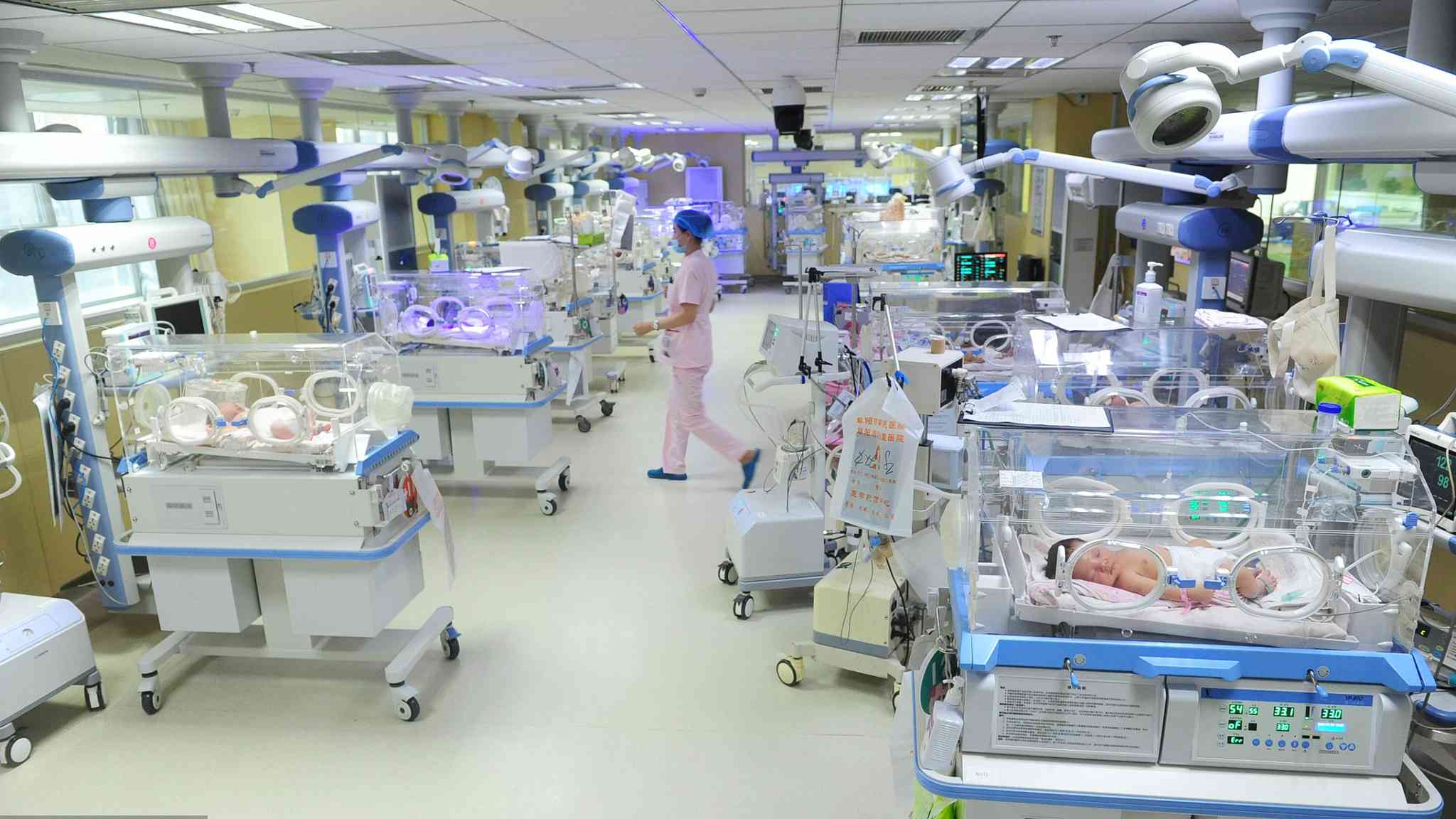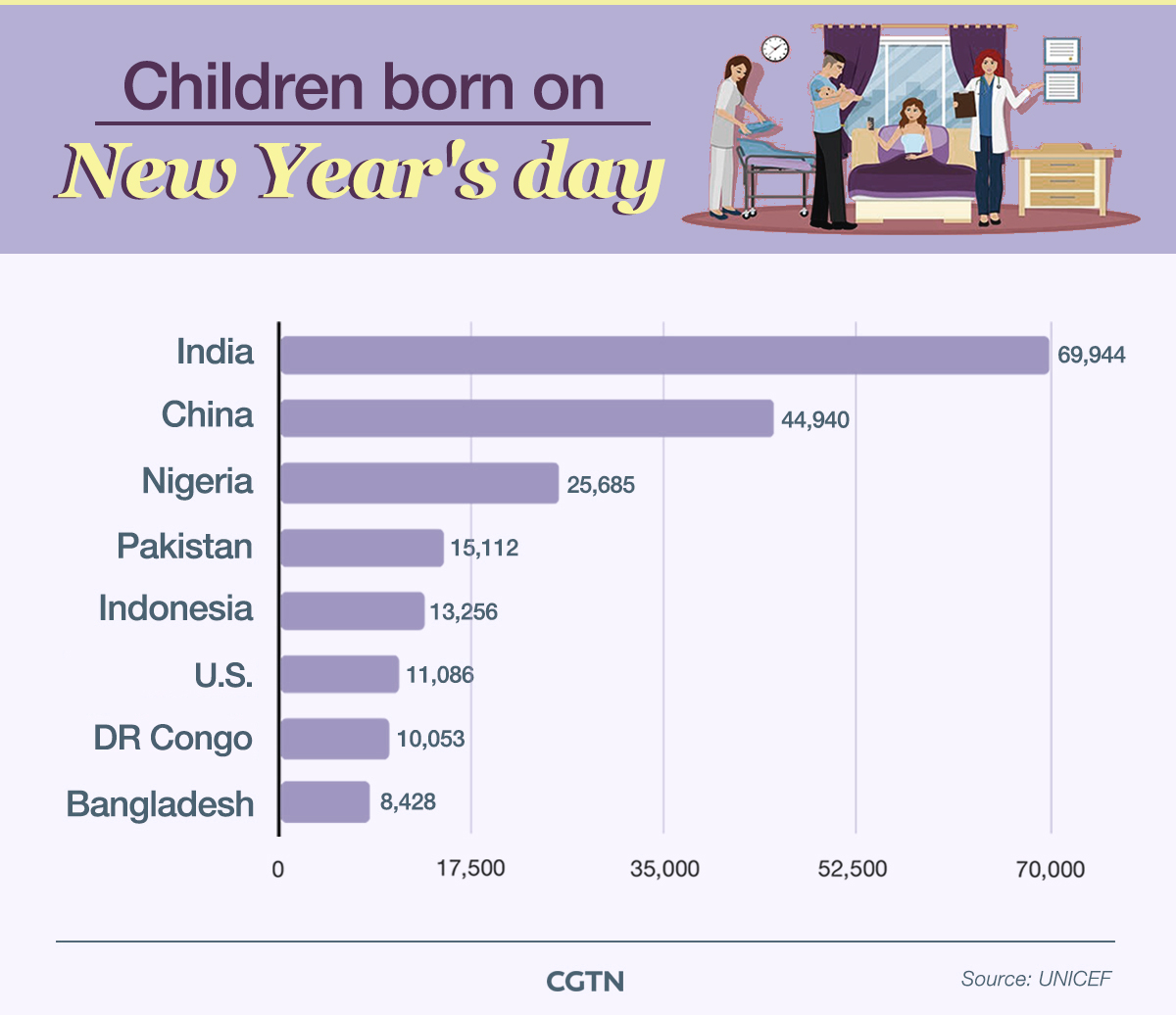
Tech & Sci
12:38, 02-Jan-2019
On New Year's Day, China, India add highest number of new residents
Updated
11:59, 05-Jan-2019
CGTN

On the first day of the New Year, India and China welcomed the largest number of newest residents.
While India added the highest numbers of newest and tiniest citizens with 69,944 births, China followed with 44,940 births. Globally, 395,072 babies were born on January 1 and a quarter of them arrived in South Asia, Unicef statement maintained.
Of the 26 most major cities, Beijing hospitals were busiest, delivering 605 babies. With only five deliveries, York was at the bottom of the list.
Japan, a country with a rapidly aging society that desperately needs new citizens, recorded only 2,769 newborn with 310 births in Tokyo.
In the U.S. around 11,086 births were reported; Emma, Liam, Olivia emerged as most common names preferred by parents. In Germany, Marie, Sophie, and Maria were the most common names for babies born on the New Year's Day.

Over 395,000 babies are born worldwide on New Year's Day. /CGTN Graphics
Over 395,000 babies are born worldwide on New Year's Day. /CGTN Graphics
Globally, there has been a remarkable progress in child survival. In the last 30 years, the child mortality rate of children under five years of age has reduced by more than half. However, newborns in the developing world still face a significant threat.
“Babies dying in the first month account for 47 percent of all deaths among children under five years,” Unicef said.
In 2017, about one million babies died the day they were born, and 2.5 million in just their first month of life. Most of these deaths occurred from preventable causes such as premature birth, complications during delivery, and infections like sepsis and pneumonia, a violation of their fundamental right to survival.
“This New Year's Day, let's all make a resolution to fulfill every right of every child, starting with the right to survive,” said UNICEF Deputy Executive Director Charlotte Petri Gornitzka.
“We can save millions of babies if we invest in training and equipping local health workers so that every newborn is born into a safe pair of hands.”

SITEMAP
Copyright © 2018 CGTN. Beijing ICP prepared NO.16065310-3
Copyright © 2018 CGTN. Beijing ICP prepared NO.16065310-3